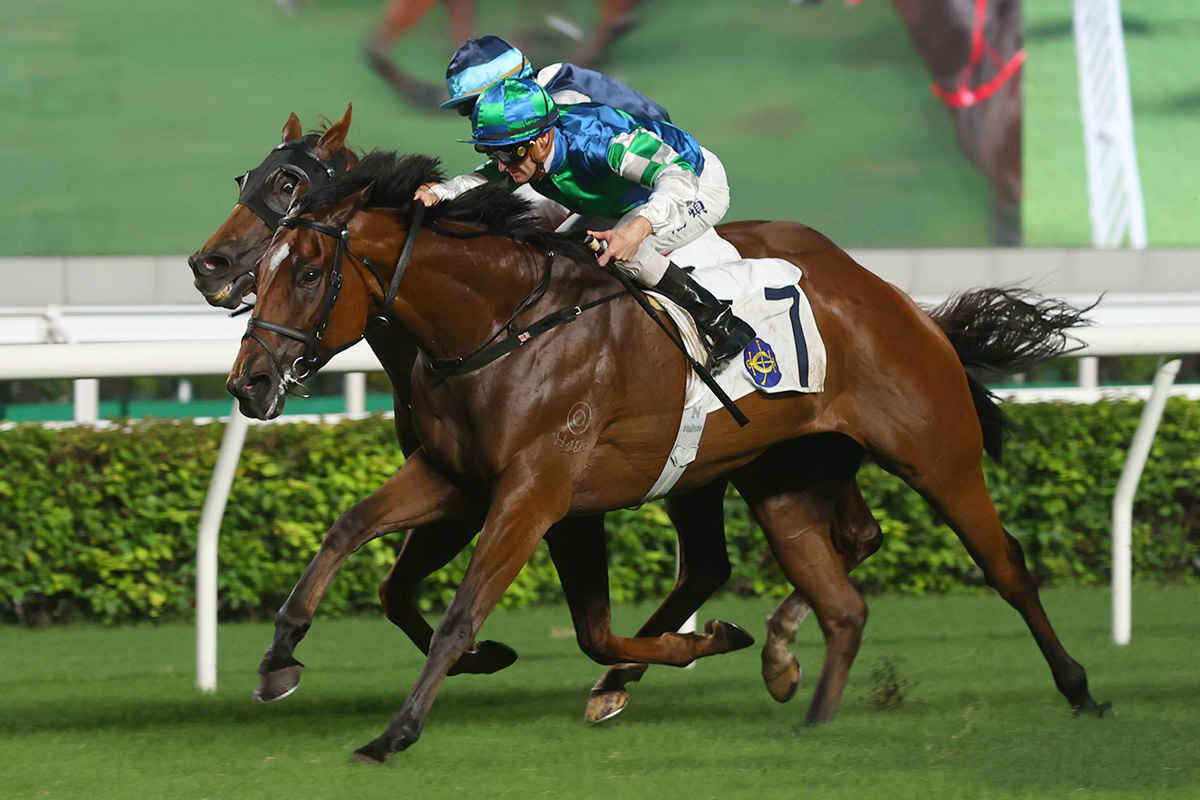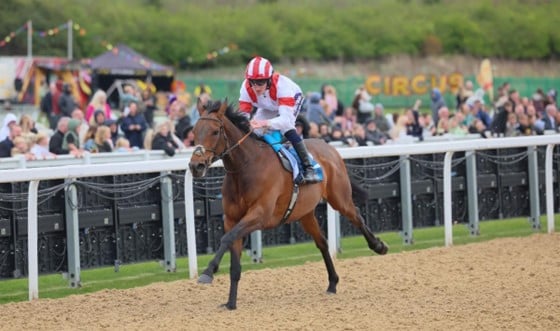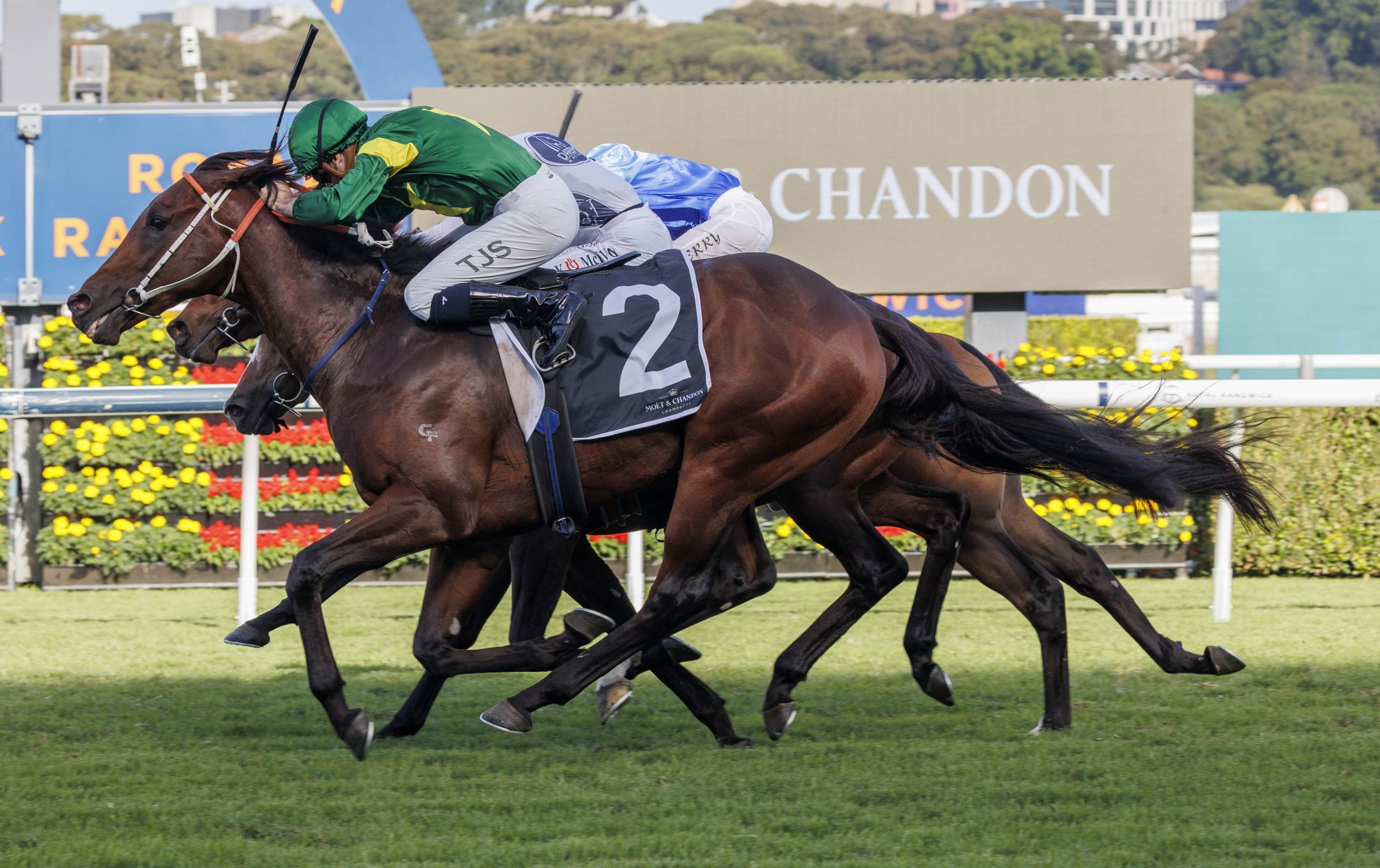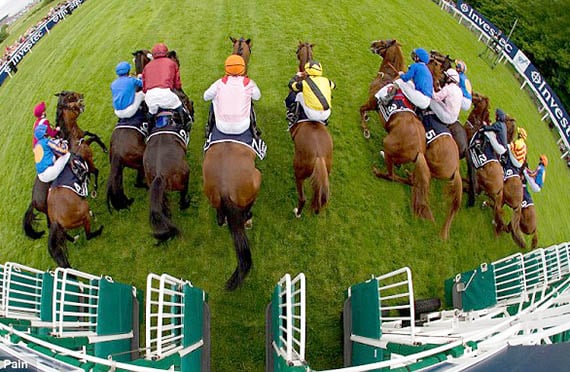
Away they go The 12 runners fly out of the blocks at Epsom in Mark Pain’s brilliant photograph
Racing owes the wonderful showcases that are The Oaks and the Epsom Derby to Edward Smith-Stanley, the 12th Earl of Derby. Lord Derby was leasing an estate named The Oaks from family member Johnny Burgoyne. At Mr Burgoyne’s urging, Lord Derby introduced a race for three-year-old fillies over a mile and a half and named it after the estate.
The first “Oakes Stakes” was run in 1779 and appropriately won by Lord Derby’s filly, Bridget. At the victory dinner that evening, Mr Burgoyne suggested another race, for colts and fillies this time and Sir Charles Bunbury supported the idea of it being over a mile and a half and thought that Epsom was the perfect setting. It is said that having dispensed with the preliminaries, all that remained was to find the new race a name.
They say it was decided on a coin toss and while the race name went to Lord Derby, the first spoils went to Sir Bunbury, when Diomed carried his pink and white silks to success on Thursday, 4 May 1780.
The Epsom Derby
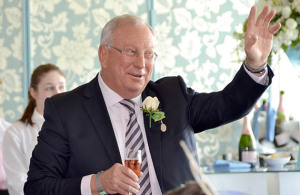
Bernard Kantor welcoming the guests on Oaks day
The Derby nestles between the 2 000 Guineas and the St Leger, serving as the middle leg of the English Triple Crown. Initially run for a purse of £1,065 15s, today’s Derby is Britain’s richest horse race, offering a stake of £1,325,000 and it is the most prestigious of the country’s five Classics.
Not only is it the most prestigious, it is arguably one of the toughest. Run on a horseshoe shaped track, the Derby field travel uphill from the start and around the first bend of the horseshoe. On the second bend (at the famous Tattenham Corner) the course becomes downhill, before rising again to the finish.
It requires supreme guts and courage and the Derby is rightfully considered the Blue Riband of the British turf. So much so that the name “Derby” has become synonymous with great races all over the world, perhaps most famously, the “Kentucky Derby”.
There have been a few changes over the years of course. The Derby has primarily been based at Epsom, apart from the war years when it was run at Newmarket and temporarily named the New Derby.
The race was first run on a Thursday, then a Wednesday (to accommodate the railway timetable), a Tuesday (during the First World War), a Saturday (during the Second World War), but since 1995 it has settled firmly on the first Saturday in June.
The meeting used to be accompanied by the Epsom Fair, to entertain the huge day crowds from London, but numbers dwindled and in 2009 the fairground was closed and the space used for parking. The race has a wonderfully rich history and the hallowed Epsom turf has been the site of some epic battles.
It is hard to select just a few as the honour roll includes some of the heavyweights of racing and breeding history, but the aptly named Ruler Of The World takes his place alongside names like Sea Bird, Nijinsky, Mill Reef, Roberto, The Minstrel, Shergar, Golden Fleece and Galileo. August company indeed. South Africa has strong ties to the festival as Michael Roberts won the Oaks on Sheikh Mohammed’s Intrepidity in 1993.
South African-bred sire Hawaii produced Hawaiian Sound who was second to Shirley Heights in 1978 and Henbit, who won the Derby in 1980. In fact, it bears telling that Henbit pulled up with a large swelling on his off foreleg, which was diagnosed as a hairline fracture to his cannon bone, making his victory all the more meritorious.
A few facts
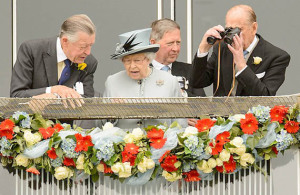
By royal appointment Queen Elizabeth II and the Duke of Edinburgh watch the Epsom Derby
A few other fun Derby facts are that 2 owners have won the Derby 5 times – the 3rd Earl of Egremont and HH Aga Khan III. Three trainers have won it 7 times – Robert Robson, John Porter and most recently, Fred Darling, who clocked up his 7th Derby win with Owen Tudor in 1941.
The jockey who sits top of the Derby log is Lester Piggott, who has lifted the trophy no less than 9 times. His first win came aboard Never Say Die in 1954 at the tender age of 18, and his last on Teenoso in 1983. The fastest winning time was set by Workforce, who completed the Derby course in 2m 31.33s in 2010.
The greatest winning margin was set by the legendary Shergar, who came home 10 lengths to the good of Glint Of Gold in 1981, earning him a spot in The Observer’s 100 Most Memorable Sporting Moments of the Twentieth Century. John Matthias on the runner-up thought he had won: “I told myself I’d achieved my life’s ambition. Only then did I discover there was another horse on the horizon!”
Controversy
The race has also had its fair share of controversy and 2013 is the centenary of Suffragette Emily Wilding Davison staging a protest for women’s rights. There are a number of theories as to her exact motives, but either way, she walked into the path of the on-coming field at Tattenham Corner and was struck down by King George V’s horse Anmer.
She died of her injuries in Epsom Cottage Hospital four days later. Despite the horrific-looking footage of the incident, Anmer got to his feet and completed the race and jockey Herbert ‘Bertie’ Jones escaped with concussion. The result of the race was also controversial as the 6/4 favourite Craganour was disqualified and the race was awarded to the 100/1 outsider Aboyeur.
SA Ties
Of course, these days our strongest link is via Bernard Kantor. Kantor started Investec with his brother Ian and Errol Grolman in 1978. “There were five of us, four chairs, one of which the typist had to have, and three phones,” he recalls. These days they boast 5 500 employees in 15 countries.
The passion for horses is somewhat left-field. The only time he ever sat on a horse, it bolted with him, finally stopping dead at a gate and depositing the luckless rider onto the other side. Fortunately his career out of the saddle has been more promising. His interest in racing was kindled in the 80’s when his bookmaking brother gifted him a racehorse.
The bug bit and it has remained his hobby ever since. He has won races in Dubai, Australia, Singapore, America, England, Italy, Germany and South Africa, once having winners on three different continents in one day!
He has several major trophies to his name, including the 2005 Dubai Duty Free with Right Approach. Kantor owned a share of 2005 Derby winner, Motivator as part of the 265-strong Royal Ascot Racing Club and almost had a runner in 2009 with South Easter, but unfortunately the colt had to be withdrawn after he scoped badly.
Locally he has been associated with the likes of Ingleside, Irish Flame and Perana. He is also passionate about breeding and produced King’s Apostle and Dupont under his Wentworth Racing banner.
Bernard has successfully combined business expertise and pleasure – he is director and shareholder in Phumelela Gaming & Leisure, he is a major shareholder in the breeding powerhouse of Klawervlei Stud and is now intimately linked with the Epsom Derby through Investec’s sponsorship.
Having previously been sponsored by Ever Ready (1984 – 1994) and Vodafone (1995-2008), it was announced in April 2009 that the Derby was without a sponsor. Sir David Prosser, a director at both Investec and Epsom, suggested that Epsom’s managing director, Nick Blofeld give Kantor a call.
Investec saw the opportunity and grabbed it. In a 2009 interview Kantor enthused, “As a racing lover, how can you go wrong with it? Everything, particularly with stallions, comes down to who won the Derby.
“After their initial 3-year sponsorship, last year Investec announced that they would be extending their sponsorship until 2022. We owe Epsom a lot,” he said. “This is an unbelievable opportunity. When we first came here no one had ever heard of Investec from the tip of Africa.” Well, they’ve heard of them now.
And judging by the huge South African crowd who turned up in support this year is anything to go by, they’ll be hearing quite a lot more of it in time to come.






